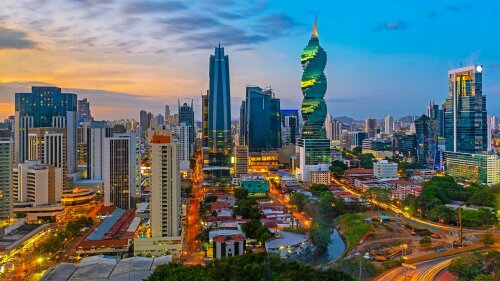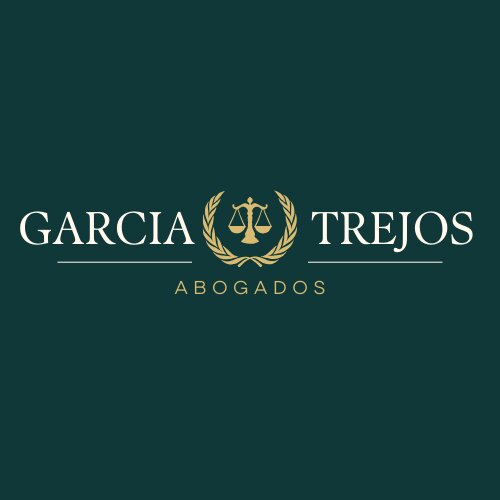Best Father's Rights Lawyers in Panama
Share your needs with us, get contacted by law firms.
Free. Takes 2 min.
Free Guide to Hiring a Family Lawyer
Or refine your search by selecting a city:
List of the best lawyers in Panama
About Father's Rights Law in Panama
Father's rights in Panama encompass the legal aspects concerning a father's relationship with his children, including custody, visitation, and child support. The legal system in Panama recognizes the importance of both parents in a child's life and aims to promote the child's welfare and best interests. Fathers are encouraged to be actively involved in their children's upbringing and have legal avenues to pursue these rights if necessary. The legal framework is primarily governed by family law statutes, which outline the rights and responsibilities of parents in relation to their children.
Why You May Need a Lawyer
There are several situations where legal assistance may be essential for fathers seeking to assert their rights in Panama. These can include:
- Disputes over child custody arrangements, particularly in the event of a divorce or separation.
- Disagreements about parental responsibilities and decision-making concerning the child's welfare, education, and healthcare.
- Negotiating visitation schedules to ensure fair and adequate parenting time.
- Securing your legal rights as a father when facing potential relocation decisions made by the other parent.
- Ensuring fair determination and enforcement of child support obligations.
A lawyer specializing in family law can provide guidance, represent your interests in court, and help reach amicable solutions in disputes.
Local Laws Overview
The Panamanian legal system is guided by certain principles and statutes when dealing with father's rights:
- Parental Authority: Both parents have joint responsibility for their children, and any decisions related to parental authority must prioritize the child's best interests.
- Custody Arrangements: While mothers traditionally have an advantage in custody cases, there is no legal presumption against fathers and courts evaluate based on the individual circumstances of each case.
- Visitation Rights: Fathers not granted custody are entitled to maintain a relationship with their children through regular visitation unless it is deemed harmful to the child.
- Child Support: Fathers have a legal obligation to contribute to their child's needs, and the amount is usually determined based on income and the child's requirements.
- Family Courts: These courts handle issues related to family law, offering mediation as a first step in resolving disputes.
Frequently Asked Questions
What legal rights do I have as a father in Panama?
As a father, you have the right to seek custody of your children, participate in their upbringing and make decisions concerning their welfare. You also have the responsibility to financially support your children.
How is child custody determined in Panama?
Child custody is determined based on the best interests of the child, looking at factors such as the child's needs, parental capabilities, and the child's relationship with each parent.
Can I challenge a custody decision?
Yes, you can challenge a custody decision by filing an appeal in the family court. Legal advice is recommended to navigate this process effectively.
What should I do if my visitation rights are being denied?
Consult with a family lawyer to discuss legal remedies. Courts can enforce visitation rights against the parent denying access, provided it is in the child's best interests.
Do I have to pay child support if I am not living with the child?
Yes, fathers are obliged to contribute to their child's upbringing financially, regardless of living arrangements. The amount is usually based on income and the child's expenses.
Can I modify my child support payments?
Yes, you can request a modification of child support payments through the family court if there is a significant change in circumstances, such as income changes.
How can I establish paternity in Panama?
Paternity can be established either voluntarily, through the father's acknowledgment, or through a court order requiring a paternity test.
What is the process for obtaining joint custody?
If both parents are agreeable, a joint custody agreement can be formalized through mutual consent. Otherwise, the family court will decide based on the child's best interests.
Are fathers entitled to parental leave in Panama?
Yes, fathers employed in Panama are entitled to parental leave, known as "paternity leave," which provides a few days of paid leave following the birth of their child.
What should I do if I want to relocate with my child out of Panama?
Relocation usually requires consent from the other parent or authorization from the court. Legal consultation is advised to ensure compliance with the regulations.
Additional Resources
Here are some resources and organizations that can assist with father's rights issues in Panama:
- Family Courts: These courts handle all family-related legal matters. They can provide mediation services and enforce custody and support agreements.
- Office of the Ombudsman: Protects human rights, including family rights, and can be a valuable resource for complaints or guidance.
- Local Legal Aid Societies: Offer free or low-cost legal services for those unable to afford private legal help.
- Panamanian Bar Association: Can refer you to licensed lawyers specializing in family law and father's rights.
Next Steps
If you need legal assistance regarding father's rights in Panama, consider these steps:
- Consult a lawyer specializing in family law: They can provide expert guidance tailored to your specific situation.
- Gather important documents: Collect all relevant legal documents, such as marriage and birth certificates, to support your case.
- Explore mediation:** Consider mediation to resolve disputes amicably before pursuing litigation.
- Tabulate Financial Information:** Ensure you have a clear understanding of your financial situation, especially if child support is involved.
- Remain Informed: Educate yourself on your rights and obligations under Panamanian law to better advocate for yourself.
Lawzana helps you find the best lawyers and law firms in Panama through a curated and pre-screened list of qualified legal professionals. Our platform offers rankings and detailed profiles of attorneys and law firms, allowing you to compare based on practice areas, including Father's Rights, experience, and client feedback.
Each profile includes a description of the firm's areas of practice, client reviews, team members and partners, year of establishment, spoken languages, office locations, contact information, social media presence, and any published articles or resources. Most firms on our platform speak English and are experienced in both local and international legal matters.
Get a quote from top-rated law firms in Panama — quickly, securely, and without unnecessary hassle.
Disclaimer:
The information provided on this page is for general informational purposes only and does not constitute legal advice. While we strive to ensure the accuracy and relevance of the content, legal information may change over time, and interpretations of the law can vary. You should always consult with a qualified legal professional for advice specific to your situation.
We disclaim all liability for actions taken or not taken based on the content of this page. If you believe any information is incorrect or outdated, please contact us, and we will review and update it where appropriate.
Browse father's rights law firms by city in Panama
Refine your search by selecting a city.















